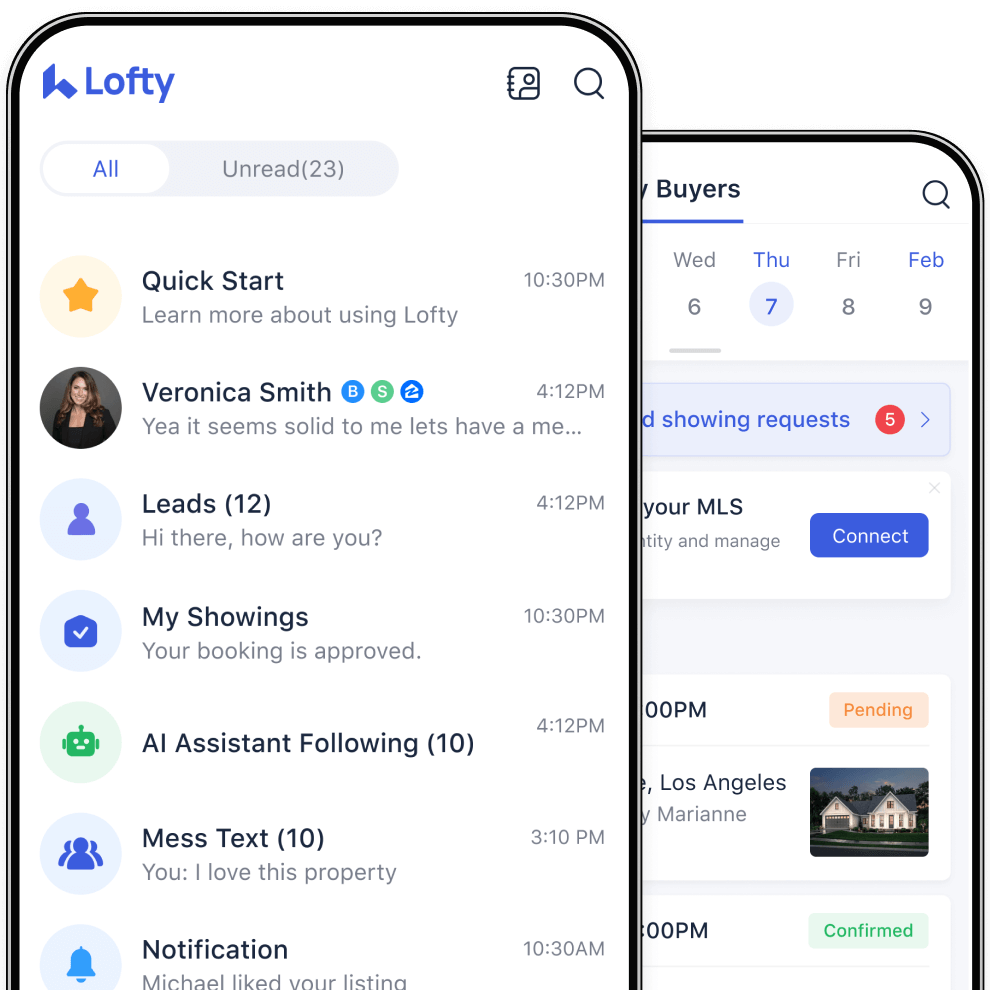How to Choose a Domain Name for Your Real Estate Website

The most important asset for any agent is a personalized website. Even before selecting the perfect template, adding images, and hooking up an MLS feed, the process of creating a branded real estate website will always begin with selecting the right domain names. This week on Tech Thursdays, we’ll learn what a domain name is and how to choose the best real estate website domain names for your website.
Picking the right domain name is arguably the most important marketing choice you can make. Domain names have the dual advantage of being an address as well as summing you up in a few words. This being said, it must be artful and practical all in one. You can redirect as much as you want, but fundamentally, you want it to be easy to find you when people look. Since I finally just picked my own domain name (try to find me!), it’s something that’s fresh on my mind.
What are domain names?
Think of domain names as your real estate website’s home address. It’s an easy way for users to search for and browse your website. Not to be confused with an IP Address (which is the more technical identifier) or the URL (which contains the domain name), domain names help users visually identify and navigate the web.
There are two main components in a domain name split up by a period. The first part is what you pick. This can be anything (as long as it isn’t already taken) and we’ll discuss how to choose the right real estate domain name later in this post below. The second part of the domain name is known as the Top Level Domain (TLD), and unlike the first component, your options are limited.
These are going to be the .com, .gov, or .org. A lot of people swear by the .com, since it’s what we all know and love, but branching away from it might give you extra pop. For example, the new .realtor TLD just opened up, but it is only for accredited realtors. Other popular TLDs include .io (for tech) and creating an entire word using the TLD known as a “domain hack.” Examples of domain hacks include del.icio.us and tel.ly, where the domain is stylized as a fragment and a country code to complete an entire phrase.
Here are five personal tips for choosing a domain name for your real estate website:
Keep it short. You don’t need a novel-length domain name like JohnCReilyRealityLocated inSunnyCalifornia.com to make it memorable. I would recommend five words at max, three if you’re good, one if you’re Google.
Avoid weird spellings, symbols, or hyphens. Yes, LA-Z-BOY and U-Haul are memorable, but they pushed a lot of marketing into making those hyphens work. Also, U-Haul chose to have it’s website be uhaul.com while www.la-z-boy.com looks odd. Make sure your domain is easy to guess; it’s not a password. You want people to know it by heart.
Make it relevant. If you already have some branding and marketing in place, use it! It will help current clients find your site and it keeps the voice consistent. For example, if you market your team as a duo (e.g., Bob and Susan Real Estate), consider choosing a domain name with Bob, Susan, and Real Estate included and preferably in that order.
If you don’t already have a brand, put something involving reality or real estate in the domain name. For example, you can’t get apartments.com, but that is a great example of relevance. Good things to look at are going to be Google Trends which show search trends for any given search phrase and Google Adwords, which is an even more in depth tool for seeing how users search for you based on keywords.
Have a word describing your location. Since a domain name can refer to a company anywhere in the world, have yours localized. This is specific to any type of business that relies on a physical location. It will help with Search Engine Optimization (SEO), which I’ll get to in a bit.
Don’t have it just be your name. Your name is who you are, but it doesn’t describe anything about you professionally. The important thing is to convey are where you are and what you do, not just who you are. Your personal name is arbitrary, so don’t have your domain name be that as well. Although my last tip might contradict the first, remember that choosing the right domain name is a balance between art, science, and marketing.
Here is a list of tools to help you search for available domain names and perform user research:
Google Adwords: https://adwords.google.com
Google Trends: https://www.google.com/trends/
Instant Domain Search: https://instantdomainsearch.com/
Moz Blog on Domains: https://moz.com/learn/seo/domain
What is SEO?
SEO stands for Search Engine Optimization and refers maximizing your rank in search results. Since search engines are what people use to find things they need, understanding this is important. Search engines perform a variety of functions, but at their core, they are built to perform two key functions: Index the web and deliver content it thinks the user will find relevant based on a keyword search (and a fancy, complex algorithm). Search engines and SEO is so complex and so important, there are people who focus on this as a full time career.
The end goal of SEO is about making your website appear higher on a list of search results. Search engines are always tweaking their algorithms, but SEO will always champion the use of keywords and metadata. The rest of it involves making sure your page loads quickly (on all devices, not just computers) and has a lot of link-backs to your site.
In a later post, I will dive deeper into SEO and walk you through how to optimize your website for organic leads, but for now, here are some helpful resources I personally endorse:
Moz is an industry leader on SEO tools, including competitor analysis, keyword research, and entire website audits.
That’s it for this weeks Tech Thursday. Remember, just think of the Internet as another tool. Just like any tool, the more you learn about it before you use it, the more you’ll get out of it! Stay tuned for my next post on essential mobile apps for real estate agents.
